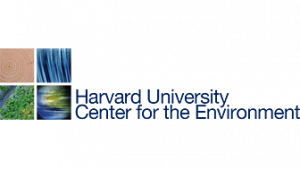Harvard’s Solar Geoengineering Research Program (SGRP) Fellowships

Please note: the application deadline for the 2021 SGRP Fellowship was January 29, 2021. We are no longer accepting applications at this time for the 2021 cycle.
-----
Harvard’s Solar Geoengineering Research Program (SGRP) invites applications for post-doctoral and pre-doctoral fellowships, under the direct supervision of Harvard faculty. The fellowship program is loosely modeled on the successful Harvard University Center for the Environment (HUCE) fellowship program. Harvard University is an equal opportunity, affirmative action employer.
Eligibility
Scholars within three years of earning their doctorate (for post-doctoral fellowships) or those admitted to or pursuing a Ph.D. (for pre-doctoral fellowships). Fellowships are open to current graduate students or fellows. We encourage applications from scholars in a range of disciplines, including the natural sciences, economics, law, government, public policy, public health, medicine, design, and the humanities.
Criteria
Quality of fellowship candidate, originality of proposed research, relevance of research to advancing understanding and critical analysis solar geoengineering.
Process
SGRP’s Advisory Committee will review all applications and award fellowships based on the criteria above.
Application by fellows
Applications should be sent to Lizzie Burns at eburns [at] g.harvard.edu, including:
- Timeline: The candidate's desired start date and duration of the fellowship;
- Research Proposal: A brief research proposal (1-2 pages) that includes key question(s), scope, method(s), and timeline;
- CV and Cover Letter: CV and a 1 page cover letter describing the candidate's motivation for applying to this particular program, and experience working on solar geoengineering (if any);
- Faculty Support: The name of at least one Harvard faculty member with whom the candidate would like to collaborate, and a brief letter of support by the faculty member(s). This letter (suggested length one page, maximum length two pages) should explain: (i) why the proposed research is significant to advancing knowledge in the field, (ii) why this particular candidate is well qualified to advance the proposed research, and (iii) the level of commitment that the faculty member will have to the research and the candidate. Please read more below.
Finding a faculty host
Potential candidates are advised to start early to identify and establish a relationship with a Harvard faculty member to host his or her research. The host will be a mentor to the fellow and will provide office space and basic administrative support. In agreeing to be a host, the faculty member is making a significant commitment.
Some Harvard faculty members are approached by many would-be applicants. Some conduct their own selection process to identify one or two applicants for recommendation to the selection committee.
Applicants unfamiliar with Harvard faculty members could find many potential hosts, though far from all, listed on HUCE’s web pages organized by academic areas topics. See faculty member’s own web pages for more detailed information regarding publications and interests. Any faculty member from any discipline may potentially serve as a host, regardless of whether the host has had prior experience with solar geoengineering research or HUCE.

